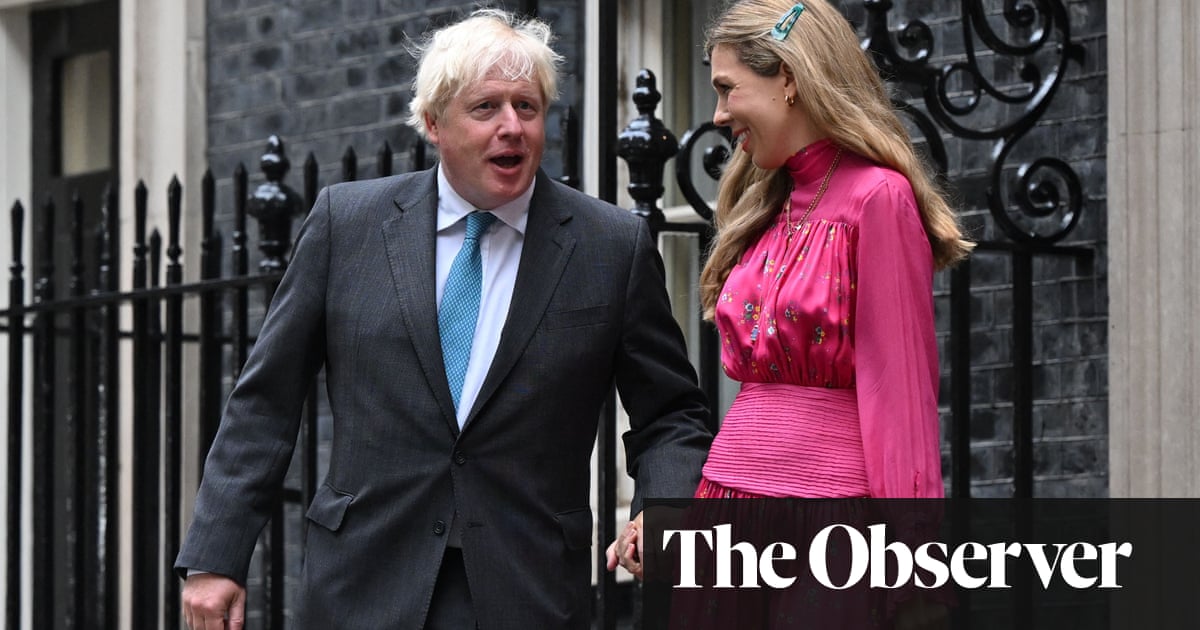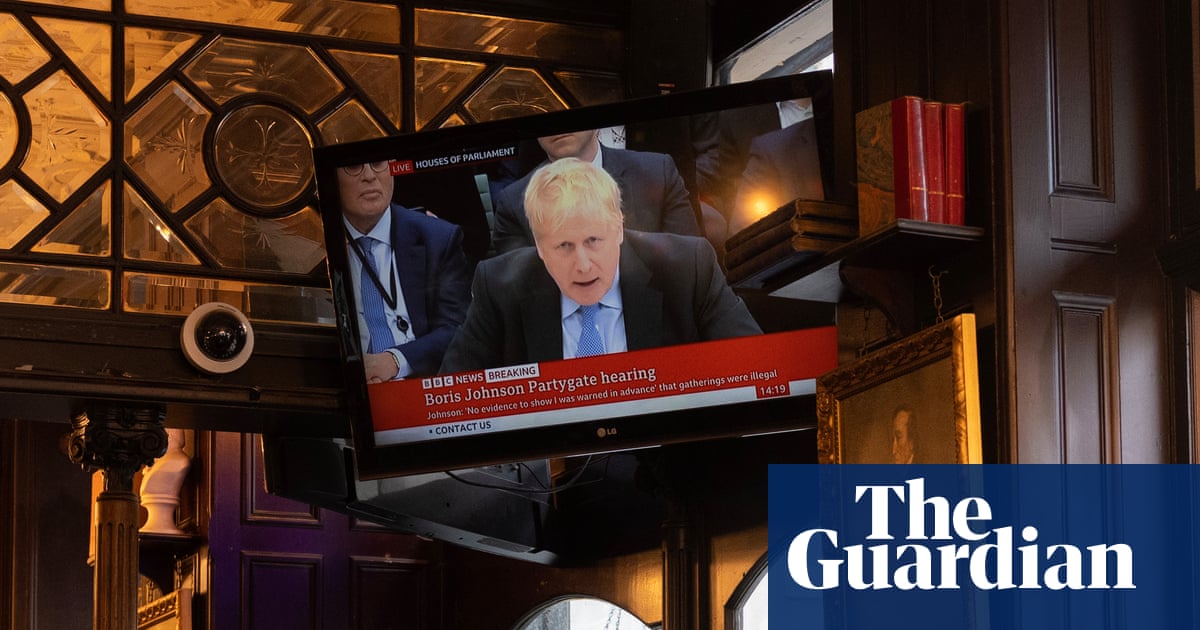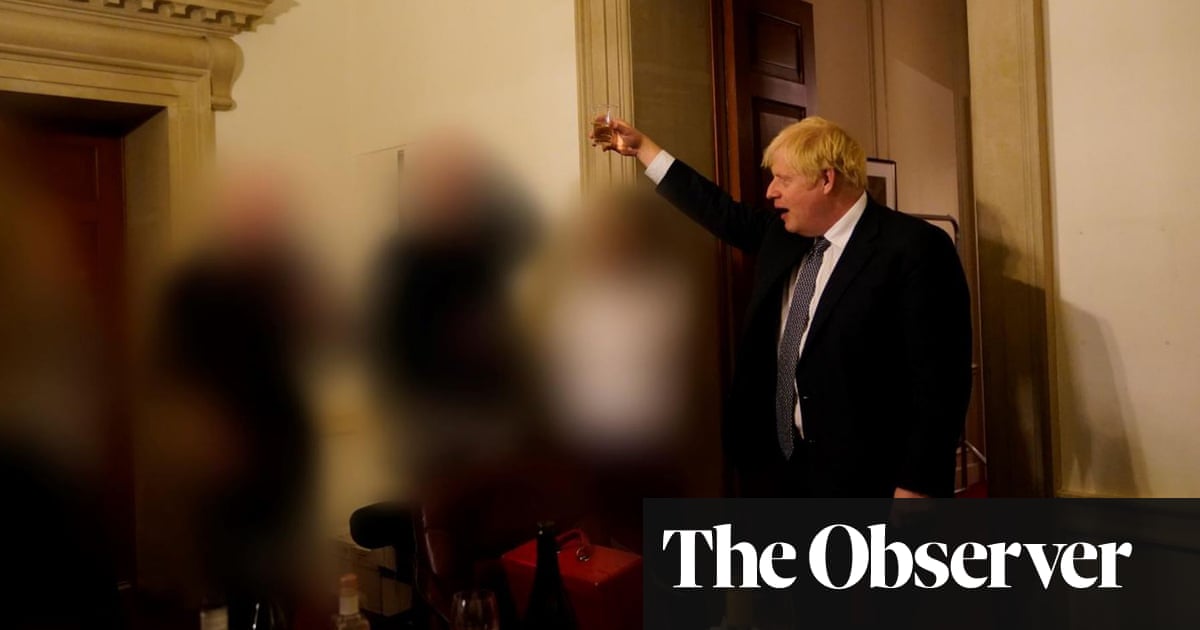
The contrast was marked. Shortly after the Commons agreed a third Partygate inquiry, the few visible Conservative MPs seemed notably downcast while colleagues had already scarpered, wheeling their suitcases out of Westminster and heading to their constituencies amid the chaos of government U-turns.
The mood in the Labour team, meanwhile, was ebullient after the party led the humiliation. Keir Starmer joined aides for a drinks gathering on the Commons terrace that evening.
“It’s not the first time we’ve done this kind of thing, and everyone has done an amazing job,” one official said. “But it’s also fair to say that if there was a way for the government to have messed up this week, they’ve managed to find it.”
Boris Johnson has perhaps experienced worse weeks as prime minister, but none have so brutally underlined the contrast between his ebbing authority and the increasingly focused tactics of Starmer’s operation, plus the willingness of opposition parties to cooperate.
A painstakingly drafted motion paving the way for a Partygate inquiry by the Commons privileges committee eventually passed without a vote. It was written by Labour but signed by the Westminster leaders or sole MPs from six other parties, including the Scottish National party and the Liberal Democrats.
Labour officials sought wording that would prevent ministers from trying to delay or dismiss the process, specifying that the inquiry would not fully begin until the end of the police investigation.
To get around another government objection, the committee’s Labour chair, Chris Bryant, who has criticised the prime minister, said he would step back from the process. Bryant even discussed this with Graham Brady, the shop steward for Tory backbenchers, to make sure the message got through.
All this took place in a truncated Tuesday to Thursday political week after the bank holiday, with opposition parties first sounding out the Commons Speaker, Lindsay Hoyle, over timetabling a motion before MPs had returned from their Easter recess.
Another challenge for Labour was to avoid potentially alienating voters when Starmer challenged the prime minister in the Commons on the same subject on three consecutive days, requiring a varied approach.
On Tuesday, responding to Johnson’s Commons apology for receiving a fixed-penalty notice, Starmer took a personal tone, calling the PM “a man without shame”. The next day at prime minister’s questions, Starmer tried to pin down Johnson over details. Finally, opening the debate on Thursday, he sought to highlight the constitutional principles involved.
The overall plan was to leave Downing Street with two unavoidable and unpalatable choices: accepting the motion, or whipping Conservative MPs to vote it down, leaving them open to accusations of trying to block scrutiny.
Such was the tangle that while Downing Street did table an amendment, late on Wednesday evening, little more than 12 hours later it had been dropped after Tory MPs made it plain they could not support the tactic.
The end result is Johnson will be investigated for alleged lying, many Tory MPs are even more unhappy, and a news agenda No 10 had hoped would be shaped by the prime minister’s visit to India has been dominated by questions about his honesty.
“I think we can say it went well,” one official for another opposition party said. “All these Commons procedures can seem deeply weird. But people know a shambles when they see one. It’s like the chaos over Theresa May’s Brexit deal. No one really understood the deal, but they all knew it was a shambles.”
Credit for Labour’s strategy will inevitably fall on its chief whip, Alan Campbell, and Starmer’s political director, Luke Sullivan. But Labour aides stressed the wider team element.
Meanwhile, though MPs from either side will be wary about reading too much into a handful of days, Tory backbenchers are gloomily aware that the much-vaunted rejig of No 10 staff and the whipping operation has not brought about the changes billed.
There were many factors behind the decision to drop the government amendment minutes before the debate began, but it was not a good sign for the new chief whip, Chris Heaton-Harris, in terms of gauging the mood of his MPs.
Hannah White, the deputy director of the Institute for Government thinktank, said it was a surprise that the government had got itself into such a mess.
“If they’d looked at it calmly, they could have just said, ‘We can let this pass. We have nothing to hide,’” she said. “But it has ended up being an own goal. They didn’t need to expend all this political capital, and they’ve ended up looking defensive.”
While the procedure could appear arcane, White said, the issues at stake were vital: “Fundamentally, this isn’t about parties. It isn’t even about Boris Johnson’s career. It’s about whether we care that when a prime minister comes to the Commons, they make sure that what they are saying is true.
“If that’s not the case then the whole point of parliament in terms of its scrutiny role is undermined. Parliament has to be able to trust that when ministers come before it, they are telling the truth. Ministers need the discipline of believing that it is important they tell parliament the truth.”












